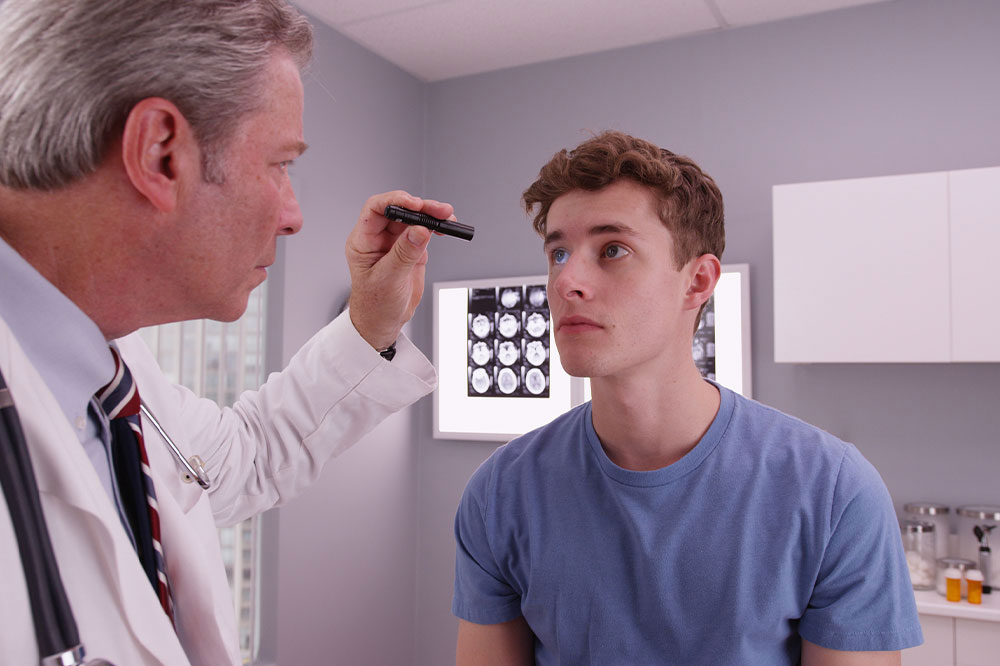7 Tips for Choosing an Eye Surgery Clinic
Eye surgery, also called ophthalmological or ocular surgery, is often necessary to correct refractive errors and treat conditions like cataracts and glaucoma. LASIK, one of the most popular forms of eye surgery, involves using a laser to change the cornea’s shape and improve vision. Given the precision and cutting-edge technology required in such procedures, one must exercise caution when choosing an eye surgery clinic. Considering certain factors can help one make the right decision.

1. Verify credentials and accreditation
When shortlisting eye surgeons, checking their credentials is important. Doing so helps one understand whether the surgeon is capable of performing the procedure correctly and safely. Certain websites and portals help verify a doctor’s license number to make the right choice. In addition to checking the license number, one must ensure the surgeon is part of the Mexican Medical Association. Consulting such board-certified doctors is recommended because they are likely to meet the standards of practice in the country.
Another important factor to consider is the accreditation of the clinic where the expert practices. A Mexican CSG Accreditation given by the General Health Council of Mexico is ideal as it is in line with international standards, such as the Joint Commission International (JCI) Accreditation.
2. Read patient reviews
Those just starting their search for an eye surgery clinic may benefit from speaking to and getting referrals from friends and family members who have undergone similar procedures in the past. Alternatively, one can look for reviews online by using a browser or visiting the clinic’s website. Like other service providers, healthcare professionals and centers are also rated and reviewed by patients. Reading reviews can take time and effort, but it helps one understand whether the facility provides quality services. It also presents a realistic image of what one can expect during and after surgery.
3. Assess communication style
While the idea of undergoing any surgery can seem intimidating, working with a responsive and communicative doctor calms the nerves and makes one more comfortable. To assess an eye surgeon’s communication, one can make an appointment at the clinic. During this consultation, one must look for an ophthalmologist who makes them feel welcome and takes the time to understand the problem instead of rushing the appointment. The expert should also respect one’s wishes during the decision-making process. Further, they should share details about the procedure, including those regarding preoperative and postoperative care.
Besides the doctor, one should ensure the staff is friendly and approachable. The medical assistants, nurses, and others working at the facility are crucial in helping one feel at ease during and after the surgery. Understanding the kind of support to expect reassures one that they are in safe hands.
4. Ensure the diagnosis isn’t rushed
Before surgery, doctors carry out a thorough diagnostic exam to rule out complications and determine one’s eligibility for the procedure. For a laser eye surgery like LASIK, they may check one’s current eye health, lens prescriptions, and age. The tests can take up to two and a half hours to complete. If a surgeon rushes through these initial tests, one should consider it a red flag and look for other eye laser clinics nearby.
5. Inquire about postoperative care
Patients usually require specialized care for a smooth recovery after eye surgery. So, any clinic one chooses must offer a personalized plan for this phase along with details about follow-up appointments. Some facilities go the extra mile to help patients arrange transportation, meals, and other services during recovery. If this is something one is interested in, it is worth bringing up during the initial consultations to make it a part of the customized postoperative care plan.
6. Review financing options
Eye surgeries are generally expensive, so many clinics offer programs to ensure patients do not face financial difficulty. For example, one may be able to leverage their Instituto Mexicano del Seguro Social (IMSS) and Seguro Popular plans to cover the cost of eye surgery. These public services are generally available only at clinics and hospitals included in the plan, so one must check with the insurance company beforehand to find a participating ophthalmological clinic. Doing so will ensure maximum insurance benefits and lower out-of-pocket costs. One can also consider private healthcare plans after researching and comparing the available options.
Besides accepting insurance, clinics offer competitive rates and flexible financing plans to reduce patients’ financial burden. Many are also flexible about the mode of payment, such as cash, cards, or checks. One must look for a facility that best suits one’s financial needs to avoid running into debt.
7. Ensure the clinic is well-equipped and clean
The clinic where the expert practices must have all the tools and devices necessary to treat different types of eye disorders. It should also be clean and hygienic, as this will impact one’s overall health. One can assess the clinic during the initial consultation or by visiting its website.
It is always better to shortlist multiple ophthalmologists and eye surgery clinics. In the unforeseen event that the primary surgeon is unavailable to perform the procedure, another experienced surgeon may be able to carry it out.




